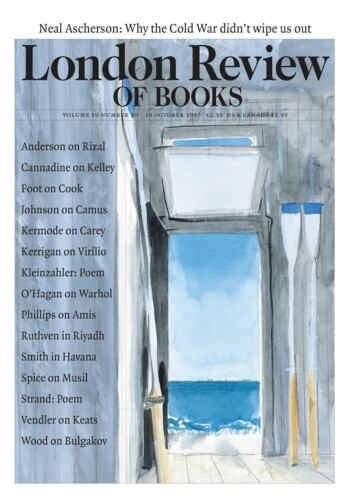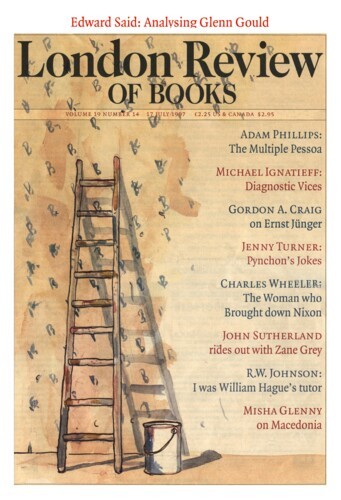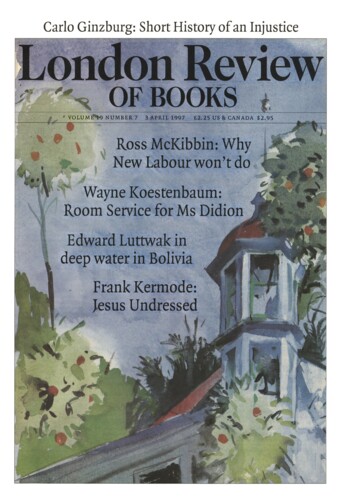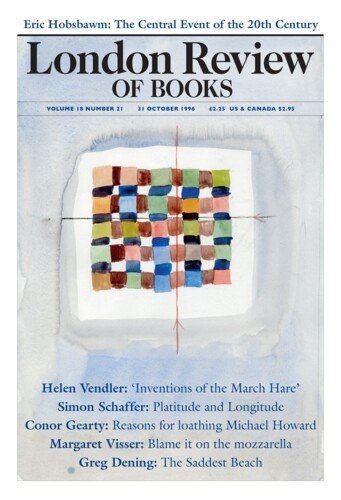Cloud Cover
Adam Phillips, 16 October 1997
For three words once, in 1987, Martin Amis sounded like D.H. Lawrence. ‘Art celebrates life,’ he wrote in his keenly anti-nuclear Introduction to Einstein’s Monsters, and then he went back to being himself: ‘and not the other thing, not the opposite of life.’ Before nuclear weapons had dawned on him – ‘I say I “became” interested, but really I was interested all along’ – it was not always clear what life Amis’s writing was on the side of. It had always seemed, reading the novels (though not, interestingly, his journalism), as if he wanted to find things to celebrate, but was hard-pressed to do so. Or that the reader had to work out what might matter to him, infer it from his exhilarated ridicule. The acute sense of people’s vulnerability in his writing made him sound like someone embarrassed by his own seriousness rather than a natural satirist. He seemed unduly self-conscious about being committed to anything other than himself as a writer, and the studied recklessness of his remarkable style. There are novelists who want to interest the reader in their characters, and novelists who want to interest us in themselves. In the second case the style is always tantalisingly suggestive of the life the writer must be living, or the unusual person he is. One of the many remarkable things about Amis is that he’s never been quite sure which kind of writer he wants to be; and at his best – in Success, in Money, in Time’s Arrow – he has been able to be both. The moralist and the celebrity are awkward bedfellows; they have to be as artful as Amis can be to pull it off.’





